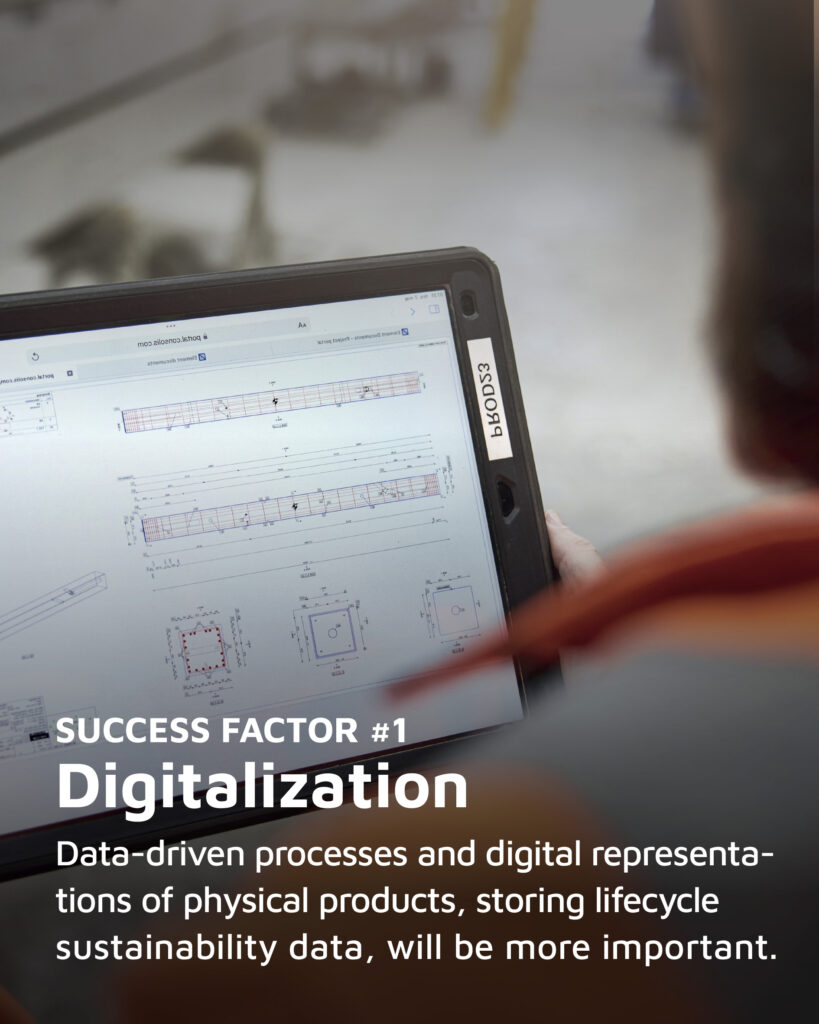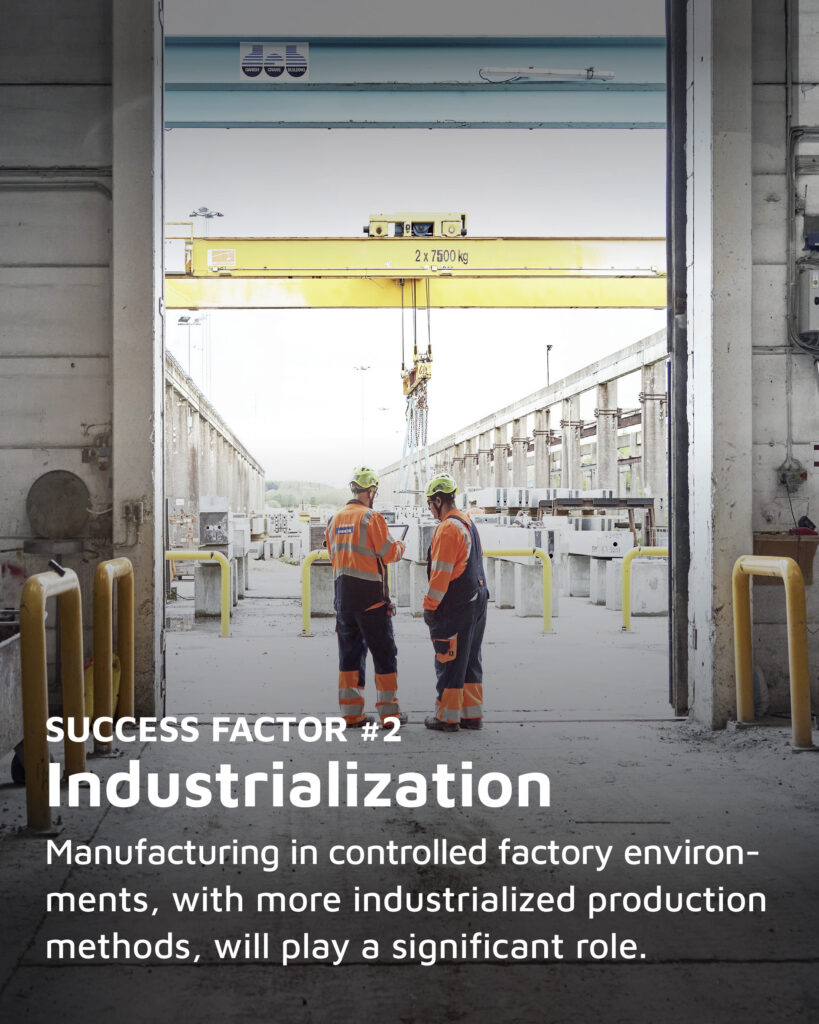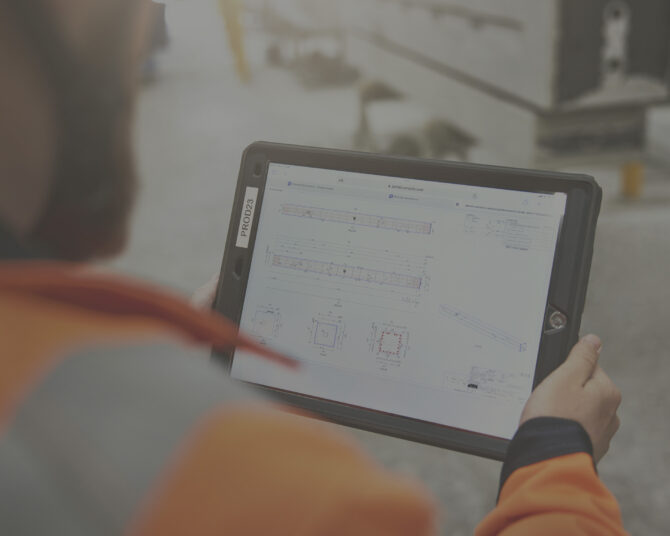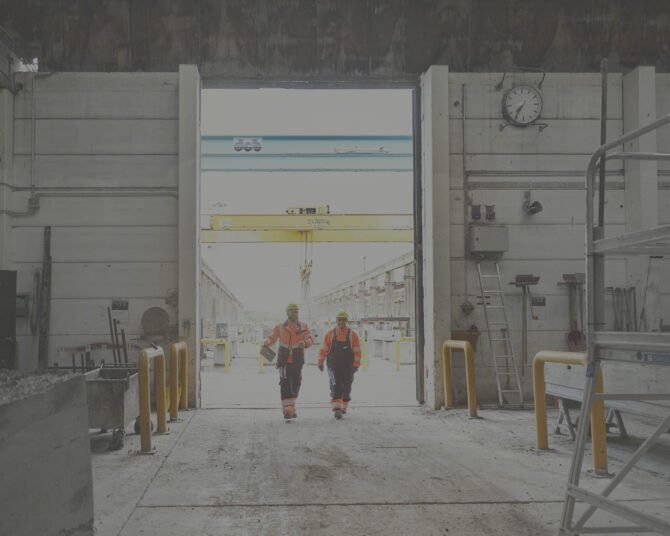The concrete industry is undergoing significant changes, driven by evolving sustainability regulations and new standards. At the same time, shifting market demands are accelerating the industry’s shift toward more sustainable practices.
Thomas Blanksvärd, Technical Director at Consolis, responsible for driving technology and material development focused on digitalization and environmental sustainability, explains the challenges ahead and highlights how to tackle the changed environment.
“As the concrete industry faces significant changes driven by new regulations, market demands, and technological advancements, companies must adapt by embracing digitalization, industrialization, and collaboration. The key to success lies in proactive innovation and strategic adaptation to the evolving landscape. The businesses that not only navigate these changes, but lead will be the winners of the future construction market”, says Thomas Blanksvärd.

Key regulatory and standardization changes
To begin with, Thomas Blanksvärd summarizes some key changes the industry is facing.
Modification of corporate sustainability reporting. In the coming year, the EU Commission’s Omnibus Simplification Package is expected to be implemented. Currently, businesses must navigate multiple overlapping directives, such as CSRD, the EU Taxonomy, CBAM and CS3D. The Omnibus initiative aims to streamline these frameworks, reducing redundancy, lowering compliance costs, and creating a more efficient reporting system. While this may somewhat ease the reporting burden in the short term, Blanksvärd emphasizes that larger companies should continue preparing for more comprehensive reporting requirements in the years ahead.
New standards for the concrete industry will be introduced in several phases, regulating concrete durability, composition, and the production of precast concrete elements. Staying up to date with these changes, both to influence their content and to adapt future products and processes, is crucial.
Demand for cost-effective solutions, there is an increased demand for more affordable housing and buildings. Building in a smarter and more resource-efficient way will be essential.
How companies can adapt to the changing landscape
As development accelerates and standardization requirements increase the construction industry needs to make significant progress in three key areas, according to Thomas Blanksvärd:
- Digitalization of the industry must be prioritized, leveraging data-driven processes to enhance standardization efforts. One crucial step in this transformation is the implementation of Digital Product Passports, digital representations of physical products that store product information along with lifecycle sustainability data. These tools will support better decision-making for more optimized products, both from a sustainability and economic perspective.
- Industrialization. The construction industry must adopt more industrialized production methods. Currently, much of the work is conducted on-site with less industrial processes, which reduce efficiency. Manufacturing in controlled factory environments will play a significant role in the industry’s future.
- Collaboration. Cross-industry partnerships involving companies across the existing value chain, academia, policymakers, and startups will be essential in driving these changes. Closer collaboration will enhance productivity, reducing costs while improving sustainability.



Strategic vision and speed: keys to navigating industry transformation
The major transformations in the industry place high demands on companies’ ability to innovate.
“Understanding market drivers and anticipating future needs are essential. With this foundation, companies can develop long-term strategies that remain adaptable as conditions change. Timing is crucial, being neither too far ahead nor lagging behind on developments,” says Thomas Blanksvärd.
Being able to operate at two speeds is another clear success factor, according to Blanksvärd.
“You need to think slow, and act fast. Companies that can execute rapid development cycles while maintaining a strategic vision will emerge as industry leaders,” says Thomas Blanksvärd.
Finally, Blanksvärd also emphasizes the importance of strong leadership.
“A good leader must have the ability to see the bigger picture and set the right course. Equally important are the managers who create the conditions necessary for efficient execution toward these goals,” says Thomas Blanksvärd.
Accelerating industry development with new technologies
There is a rapid technological development in the market, with many different types of technologies evolving simultaneously. This is central, according to Thomas Blanksvärd, as there is no “silver bullet” that will address all industry challenges; instead, multiple approaches must be pursued simultaneously. Thomas’ highlights some developments he finds particularly interesting:
Circularity. Given the industry’s extensive material use and waste generation, substantial gains can be achieved by improving reuse and recycling processes. However, logistics remain a significant challenge. The costs associated with dismantling and relocating building components are high, and viable business models for these practices are still under development.
Data-driven project management. This refers to the digitalization of the entire lifecycle from concept to construction, operation, and maintenance. This approach enables standardization and automation, resulting in substantial efficiency gains.
Modifications of existing materials and processes. Examples of this include carbon capture and storage (CCS) and alternative binders with a lower environmental impact.
The road ahead
As the concrete industry continues to evolve, there is strong potential to shape a more sustainable and forward-looking built environment. With new technologies, smarter ways of working, and increased collaboration across the value chain, the industry is well-positioned to meet future needs and contribute positively to both society and the environment.
About Thomas Blanksvärd
Thomas Blanksvärd, Technical Director at Consolis responsible for driving the technology and material development of the company with a strong emphasis on digitalization and environmental sustainability. Thomas holds the title of Associate Professor from Luleå University of Technology. He brings a wealth of knowledge to his position, having previously worked in complex construction, technical material solutions, product and systems development.



